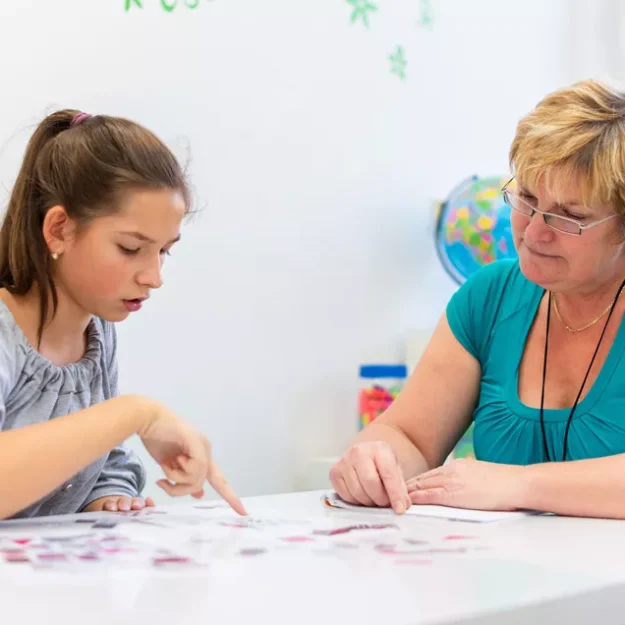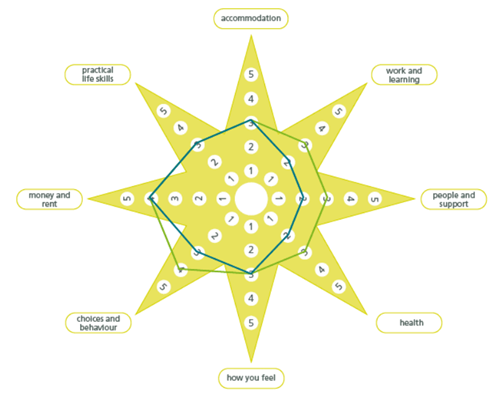Monitoring Outcomes Case Study
“T” was 16 when they was referred to an LCS Shared House. They’d been in 20+ placements over the last few years, all of which broke down. They had low self-esteem, was self-conscious and highly critical of themself, and struggled with depression and intense emotional outbursts.
Following initial risk assessments (including supporting agency input) we met with “T” to carry out a detailed assessment. Using tools including our comprehensive assessment process, and accredited evidence-based Outcome Star™ we worked with “T” to identify/agree their:
- Baseline
- Initial and longer-term goals
- Target development areas
- Barriers to overcome
- Existing skills/passions (including fitness and helping others) and how we could transfer these to development areas

We discussed what success would “look like” and how we’d track their progress –helping them take ownership of their programme and increasing engagement.
Based on these assessments, we set Specific, Measurable, Achievable, Realistic and Timebound goals including:
- Attending weekly meeting with CAHMS to receive mental health support
- Developing healthy eating plans to be followed daily
- Improving wellbeing – including involvement in fun/healthy activities like gym visits and horse-riding minimum once/week
- Re-entering education before start of next term
- Taking part in LCS’s Preparation for Independence programme – starting from day 1 of service
All information fed into “T”’s co-produced Support Plan, which was reviewed during support sessions, ensuring we gathered regular feedback, tracked progress and updated plans to reflect “T”’s changing needs. Outcome Stars™ were reviewed at regular intervals to:
- Assess progress
- Identify areas for additional support/focus
- Help “T” visualise their progress – motivating further achievement
Comprehensive service monitoring reports were provided to LCS managers – including at-a-glance progress reports, enabling rapid identification/addressing of improvement areas. These, alongside critical incident learning, feed into our continuous improvement processes – ensuring learning from successes and failures.
We reported to commissioners illustrating “T”’s individual progress/success, wider service success, and evidencing outcomes.
Our ongoing monitoring identified learning points which improved how we supported them, i.e.:
- They developed strong personal reflection skills – which we were able to draw on during emotional periods to support “self-soothing” and outburst management
- Building on strengths/interests to improve engagement – including horse-riding
Service-wide, we identified need for greater awareness/understanding of young people’s social lives – and improving our working relationships with them so we could effectively challenge inappropriate relationships, and have more in-depth conversations about all aspects of their lives.

Through regular monitoring, and continually adapting approaches to meet “T”’s needs, we improved their emotional resilience, attitude, and general wellbeing – improving their independence. “T”’s Outcomes Star™ demonstrates improvements in
- Working/learning – they re-entered training
- People & support, and health – they developed healthier friendships and has started horse-riding again
- Choices/behaviour – they reduced missing episodes
Young Person’s Star™ © Triangle Consulting Social Enterprise Ltd. Reproduced under licence. See www.outcomesstar.org.uk for full copyright details“
